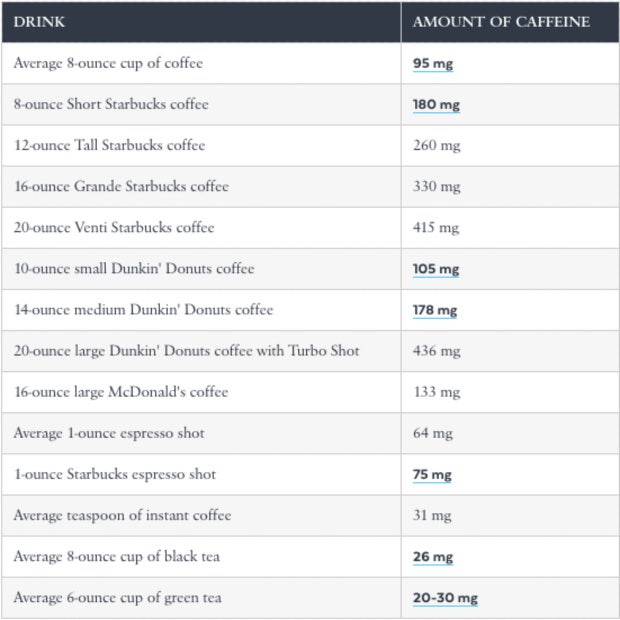Here's How Much Coffee Is Officially Too Much
Say it ain't so, science!
 Anna Tryhub / Shutterstock
Anna Tryhub / Shutterstock By Leta Shy
There are many benefits to drinking coffee every day — from disease-fighting antioxidants to improved memory and longevity. But when it comes to your caffeine habit, science says there really can be too much of a good thing.
So, how much caffeine is too much? And since there's a caffeine limit, how much coffee is too much before your body starts showing signs of adverse effects?
Is coffee good or bad for you — and how much caffeine is too much?
For the average person, the Food and Drug Administration says that up to 400 milligrams of coffee a day — or about four to five cups of the average brewed coffee (max) — is a moderate amount of caffeine that isn't harmful to otherwise healthy adults.
They do note, however: "Certain conditions tend to make people more sensitive to caffeine’s effects, as can some medications. In addition, if you’re pregnant, trying to become pregnant, or breastfeeding, or are concerned about another condition or medication, we recommend talking to your health care provider about whether you need to limit caffeine consumption."
You can take 400 milligrams at once, but it's not recommended. This usually happens when you take a dietary supplement like caffeine pills, which come in 100 and 200 mg.
Once you hit more than the aforementioned four or five cups, you may experience less-than-desirable side effects of caffeine.
Drinking more than 500 milligrams every day, in fact, can induce anxiety, insomnia, and muscle tremors, and can even lead to increased heart rate and blood pressure, headaches, or digestion issues.
You can experience unpleasant side effects of nervousness and jitteriness when you take around 1,000 milligrams of caffeine a day. And according to doctors, once you hit the six-to-eight cups of coffee range, you have entered the danger zone.
If you want to stay away from the caffeine jitters, limiting caffeine intake to under four cups of coffee per day is a perfectly reasonable plan.
While cutting back on your caffeine intake, you may experience withdrawal symptoms like headache, fatigue, or drowsiness. The symptoms should only last about a week-long at max, thankfully.
However, you may be surprised by how much caffeine is in your favorite beverages — it can be much more than you think!
See how much caffeine is in your favorite drink, including coffee and tea:
 Photo credit: PopSugar
Photo credit: PopSugar
You can use the chart above as a guide if you want to get a better sense of how much caffeine you're typically consuming on any given day (or every single day, for that matter).
Even if you enjoy two 12-ounce cups at Starbucks, for example, that's 520 milligrams of caffeine — 120 milligrams over the recommended limit!
Also remember that even though espresso-based drinks like lattes and cappuccinos contain less caffeine than brewed coffee, many drinks are made with at least two espresso shots, not one.
Leta Shy, formerly the Fitness Editor for PopSugar, currently serves as Digital Director at SELF at Condé Nast.
